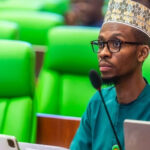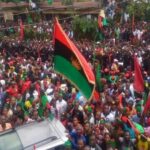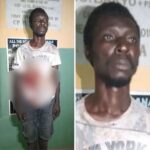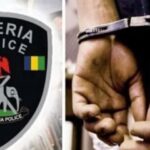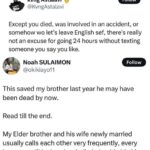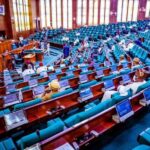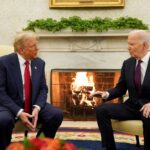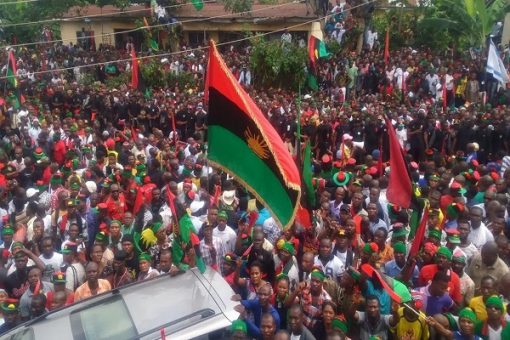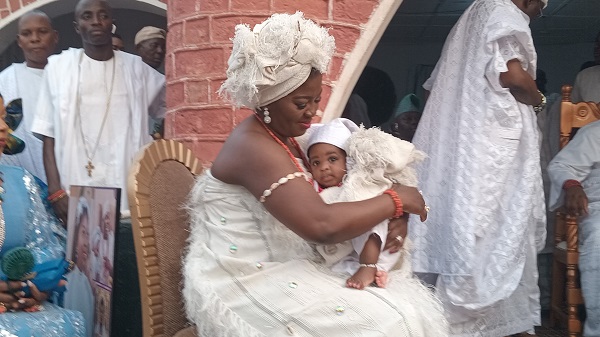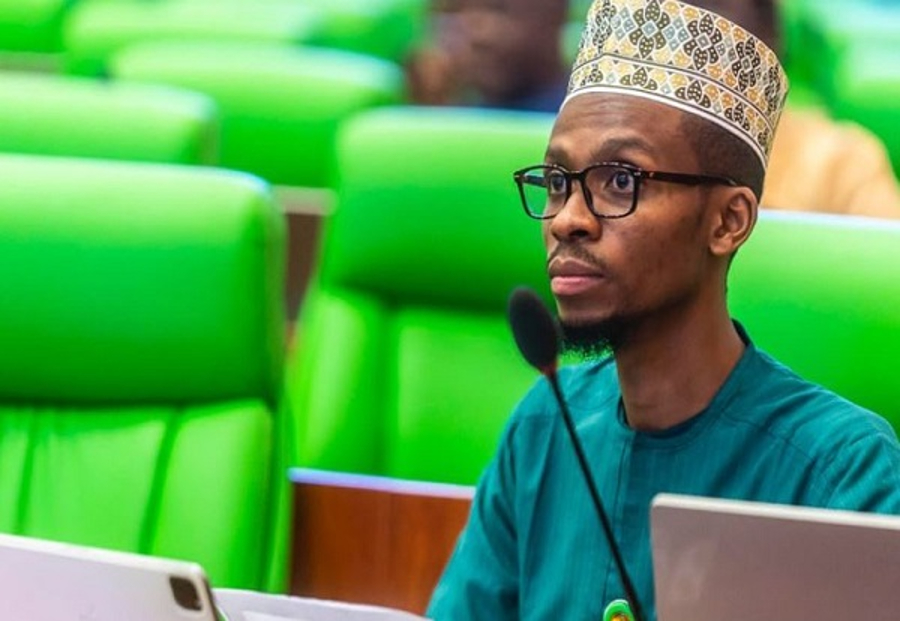The Indigenous People of Biafra (IPOB) has gone before the Supreme Court to challenge the January 30 judgment by the Court of Appeal, Abuja affirming its designation as a terrorist group and proscription by the Federal Government.
The group filed a five-ground notice of appeal to that effect on February 7 through its lawyer, Aloy Ejimakor. It has the Attorney General of Federation ( AGF) listed as the sole respondent.
IPOB is contending, among others, that its proscription violated constitutional provisions, particularly the right to fair hearing, as enshrined in Section 36 of the Constitution.
It faulted the Court of Appeal, arguing that the lower court erred in law in upholding an ex parte order that led to its designation as a terrorist organization, without affording it the opportunity to be heard.
IPOB stated that the Court of Appeal misinterpreted the Constitution by prioritising national security concerns over its right to a fair hearing.
The group added that the proceedings leading to its proscription failed to meet the standard of proof required in criminal cases, because allegations of terrorism required proof beyond reasonable doubt.
IPOB is also contending that its classification as a terrorist group unfairly subjected its members, who are primarily of Igbo ethnic origin, to discrimination contrary to Section 42 of the Constitution.
It added that the Court of Appeal wrongly equated proceedings before a “judge in chambers” with an ex parte hearing, thereby denying IPOB the right to present its case.
IPOB further faulted the Court of Appeal, claiming it exceeded its jurisdiction by effectively declaring a “state of emergency,” a power constitutionally reserved for the President under Section 305 of the Constitution.
Citing the African Charter on Human and Peoples’ Rights, which it claimed guarantees the right to self-determination, IPOB argued that its agitation for the state of Biafra falls within the legal boundaries of international human rights law.
The Court of Appeal had, in a unanimous of a three-member panel on January 30 judgment upheld the argument by the lawyer to the Federal Government, Oyin Koleosho, that the state acted lawfully in proscribing IPOB, whose activities, it held, threatend the nation’s continued existence and the security of citizens.
In the lead judgment, Justice Hamma Barka resolved all the issues raised for determination against the appellant – IPOB, declared the appeal unmeritorious and dismissed it.
He faulted the claim by the appellant (IPOB), represented by Chukwuma Machukwu Umeh (SAN), that the procedure adopted by the Fed Govt in proscribing the group was flawed.
Justice Barka held that the Fed Govt fully complied with the provisions of the relevant laws, particularly section 2 (1) of the Terrorism (Prevention) Act by adopting the ex-parte proceedings.
He said: “Such ex-parte proceedings, unless tainted, does not constitute any breach of the right to fair hearing of parties before the court.”
Justice Barka adopted the position of the Supreme Court in the case of Dokubo Asari against the Federal Republic of Nigeria to the effect that where national security is threatened or there is the likelihood of it being threatened, human rights or individual rights or those responsible takes a second place.
He added: “Human rights or individual rights must be suspended until national security can be protected or well taken care of. This is not anything new.
“The corporate existence of Nigeria as a united, harmonious, indivisible and indissoluble sovereign nation is certainly greater than any citizen’s liberty or rights
“While the security of this nation is in jeopardy, and it survives in pieces rather than in peace, individual’s liberty or rights cannot exist.”
Justice Barka said while the claim by the appellant’s lawyer that the founders of the group had good ideas to achieve could be possible, there is no doubt that IPOB, based on its activities, was infiltrated by hoodlums, operating and surviving on mayhem, which is worrisome and quite evident to all well meaning Nigerians.
He noted that since IPOB became known for perpetrating violence, the Fed Govt could not be blamed for taking the steps it took to proscribe and designate the group as a terrorist organisation.
The judge found that, as against the claim by the appellant, that there were evidence that former President Muhammadu Buhari gave approval for the Attorney General of the Federation (AGF), Abubakar Malami (SAN) to apply to the court gor the proscription order in compliance with section 2(1) of the Terrorism (Prevention) Act.




